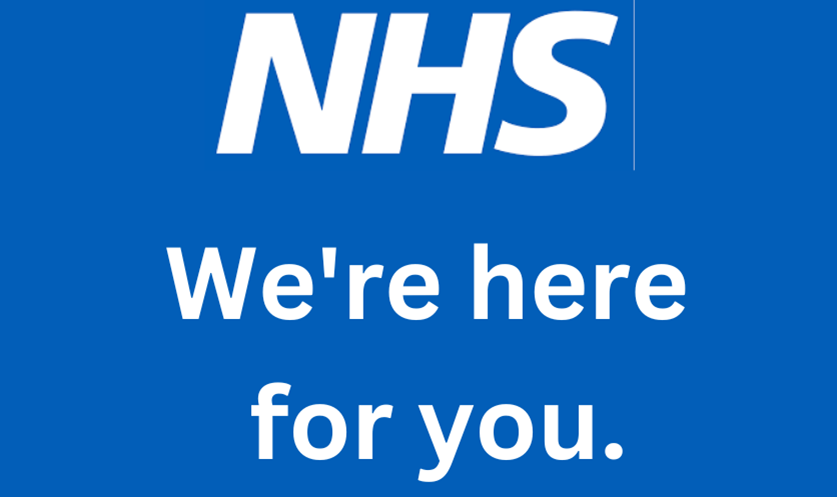The practice offers many vaccinations as part of the national NHS immunisation programmes. These include immunisations for children, adults and all at-risk patients.
Some vaccinations are offered as a single dose while some may require a booster. There are also some vaccinations, such as flu, that are offered seasonally.
Vaccines given to babies under 1 year old
6-in-1 vaccine
The 6-in-1 vaccine helps protect against serious illnesses like polio and whooping cough.
Pneumococcal (PCV) vaccine
The pneumococcal vaccine helps protect against serious illnesses like pneumonia and meningitis.
MenB
The MenB vaccine will protect your baby against infection by meningococcal group B bacteria.
Rotavirus
The rotavirus vaccine helps protect against rotavirus, a common cause of diarrhoea and vomiting.
Vaccines given to children aged 1 to 15
Hib/MenC
The Hib/MenC vaccine is given to protect them against Haemophilus influenzae type b (Hib) and meningitis C.
MMR vaccine
The MMR vaccine is a safe and effective combined vaccine. 2 doses of the MMR vaccine provide the best protection against measles, mumps and rubella.
Children’s flu vaccine
Flu can be very unpleasant for children and can sometimes cause serious problems, such as pneumonia.
4-in-1 preschool booster
The 4-in-1 pre-school booster helps protect against serious illnesses such as polio and tetanus.
HPV vaccine
The HPV vaccine helps protect against human papillomavirus (HPV).
3-in-1 teenage booster
The teenage booster, also known as the 3-in-1 or the Td/IPV vaccine, is given to boost protection against 3 separate diseases: tetanus, diphtheria and polio.
MenACWY vaccine
“Fresher” students going to university for the first time should make sure they’ve had the MenACWY vaccine to prevent meningitis and septicaemia, which can be deadly.
Vaccines given to adults
Pneumococcal (PPV) vaccine
The pneumococcal vaccine helps protect against serious illnesses like pneumonia and meningitis.
Flu vaccine
The flu vaccine helps protect against flu, which can be a serious or life-threatening illness. It’s offered on the NHS every year to people at higher risk of getting seriously ill from flu.
Shingles vaccine
The shingles vaccine helps protect against shingles. The shingles vaccine helps protect against shingles. Shingles is a common condition that causes a painful rash.
Vaccines given to people at-risk
COVID-19 vaccine
Get information about COVID-19 vaccination, who can get it, and safety and side effects.
BCG (TB) vaccine
The BCG (Bacillus Calmette-Guérin) vaccine helps protect you against an infection called tuberculosis (TB). It’s mainly given to babies and young children who are at higher risk of getting TB.
Hepatitis B vaccine
The vaccine gives protection against the hepatitis B virus, which is a major cause of serious liver disease, including scarring of the liver (cirrhosis) and liver cancer.
Chickenpox vaccine
The chickenpox vaccine protects against the varicella zoster virus that causes chickenpox.
Travel Advice / Vaccinations
Travel Vaccinations
Use this service to arrange travel vaccinations and get advice for your upcoming trip abroad.
To help the travel nurses to assess your needs, it is important that you fill out this form before your appointment.
This is not an assessment to see if you are fit to travel, the practice nurse is not qualified to do this. If you have other medical concerns of this nature, book an appointment to discuss with a GP.
Travel Vaccination Risk Assessment
It is recommended in the UK that you have a Diphtheria, Tetanus and Polio Vaccine within 10 years if travelling. Please call the surgery to make an appointment for this vaccination.
Travel Advice
As vaccinations are only 5% of your risk factors when travelling abroad it is very important that you visit the webpage
Visit Travel Health Pro
On this webpage click on the country you are visiting and please study the information carefully on all advice you feel is relevant including:
Food and water precautions
Personal safety whilst abroad and rules of the country you are visiting.
Your rabies risk and what to do if you are exposed, how to stay safe in the sun.
Any malaria guidance of the country you are visiting (as you may need over the counter or prescription medication)
We recommend travel insurance for anyone travelling outside of the UK and advise you to be aware of the nearest medical centre to where you are staying in case you are to need this.
